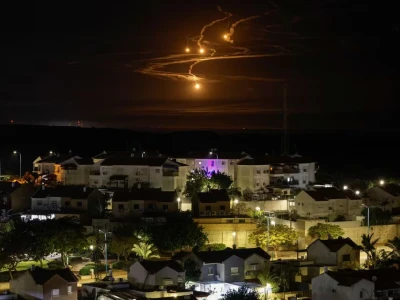
Arab world's abandonment of Palestine: a heartbreaking reality
They have essentially abdicated their responsibility, and it is the silence of the Arab world that reverberates most painfully.
By
Azhaar Abdul Azeez
When Zionist forces embarked on the ethnic cleansing of Palestine to establish the state of Israel in 1948, the plight of the Palestinian people shocked the Arab world. Arab nations, in the midst of their own anti-colonial struggles, elevated the liberation of Palestine to the status of a pan-Arab cause. However, over time, the Arab world's commitment to this cause has waned, leaving Palestinians increasingly isolated.
As a 100% Islamic nation, I found it hard to believe global sources citing that the Arab nations surrounding Palestine are complicit in the ongoing genocide across the Gaza strip, but after much research, I have come to realise that Arab nations seem to be complicit because they are indeed quiet on the subject.
The Israeli occupation, harsher than ever, casts a shadow over Palestinian lives. Israel's new coalition government, steered by Jewish supremacists and religious fanatics, perpetuates brutality. It expands its illegal colonisation of Palestinian land through government-backed violence, trampling on the rule of law and even its own status quo. Israel remains a colonialist and apartheid state, flouting UN resolutions and basic norms of civilised behaviour. And its partner-in-crime, the United States, grants it ongoing impunity.
Political Dependence on the United States
The abandonment of the Palestinians is directly related to the undemocratic nature of Arab regimes and their continuing political dependence on the United States, which remains the main supporter of Israel and its settler-colonial project. As Arab regimes solidified their positions, they found it more convenient to prioritise their own survival and interests over the Palestinian cause. The fear of antagonising the US, a powerful ally of Israel, led many Arab leaders to distance themselves from active support for Palestine.
Other western states, including France, Britain, Germany, and Ireland, offer little more than lip service to the two-state solution. Their declarations echo across diplomatic halls but fall on deaf ears in the heart of the conflict.
Shrinking Space for Advocacy
The Palestinian cause has always held a central place in the Arab public's imagination. Solidarity with Palestinians living as second-class citizens inside Israel, under occupation in the West Bank and Gaza Strip, and in refugee camps across the region was once widespread. However, as Arab governments became more authoritarian, the space for advocacy on behalf of Palestinians shrank. Increasing control over public discourse, censorship, and political violence stifled dissent across the Arab world. Calls for democratic change were suppressed, and expressions of solidarity with Palestinians met with repression.
"Most Arab states are generally allergic to popular protests,” said Marina Calculli, a Columbia University researcher in the Department of Middle Eastern, South Asian and African Studies. “They fear that opening the public sphere and allowing protests of solidarity towards Palestinians could encourage protests against the government and their policies in other fields.”
Other experts agree. “The Arab world has turned its citizens into consumers basically,” explained Rami G. Khouri, a distinguished public policy fellow at the American University of Beirut.
“You can consume anything you want. There are 25 different kinds of fried chicken which you can buy in most Arab capitals and that’s fine. That’s what the governments want is to have people spend their time, money, and thoughts on consumption. But anything that has to do with political power, public policy, and allocation of economic gains have to be controlled by the government,” he added.
Symbolic Gestures and Rhetoric
Arab governments shifted from active political efforts to symbolic gestures and deceptive rhetoric regarding Palestine. While official statements still express support for the Palestinian cause, these gestures often lack substance. Arab leaders avoid direct confrontation with Israel and the US, preferring to maintain stability and avoid jeopardising their own positions.
Once staunch allies, Arab regimes are now blaming Palestinian disunity and feigning support through the Palestinian Authority. They have essentially abdicated their responsibility, and it is the silence of the Arab world that reverberates most painfully. The Palestinians now find themselves bereft of apparent allies in their struggle against an ever-more brutal occupation and apartheid.
The Death of the Two-State Solution
The international community's long-standing approach to the Israeli-Palestinian conflict was based on the two-state solution, envisioning an independent Palestinian state alongside Israel. However, this dream has faded. Arab states, with rare exceptions, have come to realise that the two-state solution is no longer viable. Instead, some Arab countries have prioritised their own economic interests over Palestinian rights, aligning themselves with the West and abandoning the struggle altogether.
The Arab world's abandonment of Palestine is a complex interplay of political dynamics, authoritarianism, and geopolitical considerations. While the Palestinian cause remains alive in the hearts of many Arabs, Muslims and even Non-Muslims across the globe, the actions of Arab governments today tell a different story. College students in the United States advocate for Palestinians more than their own kin.
As we commemorate the 75th anniversary of the Nakba, Palestinian cries echo across time and space. The Arab world, once a beacon of solidarity, now stands silent, their fervour seems to have dissipated like the morning mist that falls over the hills of Bayt al-Maqdis.




